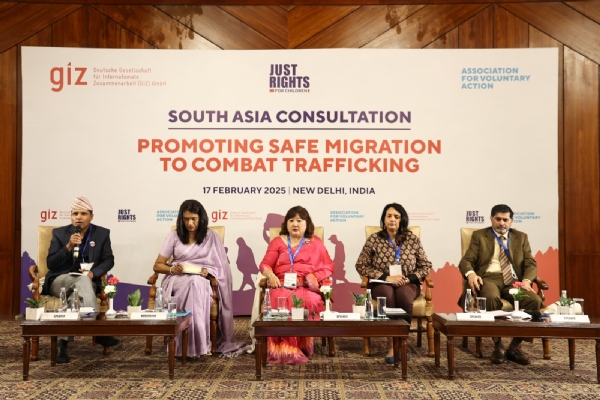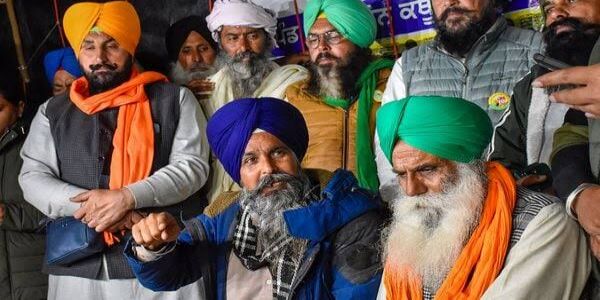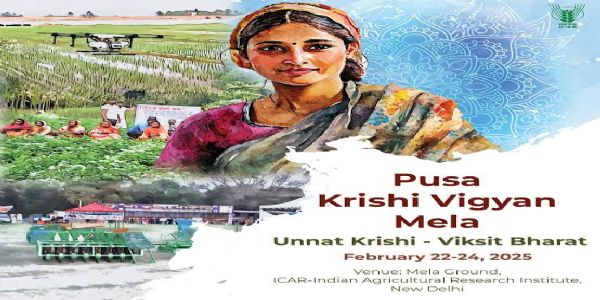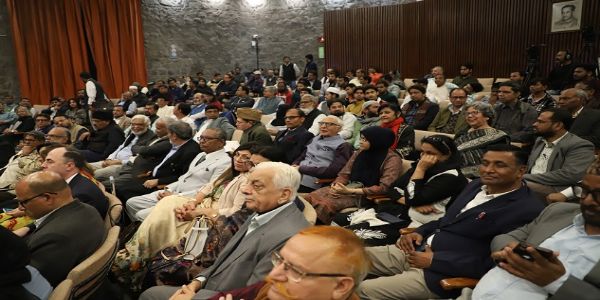
New Delhi, February 18 (HS): Representatives of governments, policymakers, law enforcement agencies, United Nations and civil society organizations from nine South Asian countries participated in the South Asian Seminar to Promote Safe Migration against Human Trafficking at Ashoka Hotel in New Delhi on Monday evening.
Initiated by the Association for Voluntary Action, this one-day seminar emphasized the need to adopt a holistic, rights-based strategy so that migration policies can be coordinated across the region and legal and policy reforms can be made in accordance with international and regional standards. Apart from India, victims of trafficking from Bangladesh, Nepal, Pakistan and Afghanistan were also present in this seminar. They shared their pain and experience and gave suggestions for its prevention.
Meanwhile, Bhuvan Ribhu, founder of Just Rights for Children, said, Human trafficking is a highly profitable organised crime that thrives on the exploitation of children and underprivileged youth in particular. To tackle this, we need to adopt a multi-pronged strategy. This includes dismantling the economic structure of trafficking, breaking the back of organised criminal gangs through legal action against them, and maintaining a global register for the exchange of information about trafficking gangs and strengthening intelligence coordination at the local, national and international levels through this.
Addressing the seminar, National Human Rights Commission (NHRC) member and former chairperson of National Commission for Protection of Child Rights (NCPCR) Priyank Kanungo said, Awareness is an important aspect that needs to be paid attention to. First of all, the victims have to understand that they are being exploited and they have to stand up for their rights. Often they are unaware of the injustice being done to them. Awareness has to be taken to the last person in the country, so that the voice of the most vulnerable sections can be heard, they get protection and they can be empowered.
In the same sequence, Bijaya Kumari Shrestha, member of the executive committee of Migrant Forum in Asia (South Asia), urged the Nepal government to increase the number of labor destinations from 110 to 160. She said that her forum has identified 50 more countries where Nepali youth are going in search of work and where they may be likely to be exploited.
Former Chief Minister of Lumbini Province of Nepal Delhi Bahadur Chaudhary said that civil society organizations, government and private institutions need to work together to ensure safe migration. There should be a need to come together. Sumita Shantiniketan Kishna, Director of Malaysia-based Our Journey, underlined the importance of child-centric policies to tackle the challenge of human trafficking. Dr. M.M.S.S.B. Yalegama, Additional Secretary, Ministry of Foreign Affairs, Sri Lanka, and Rajendra Thapa, Joint Secretary, Human Rights and International Treaty Agreement Division, Nepal, emphasized that strong commitment at the regional level and coordination among various stakeholders is needed to combat human trafficking.
Dhananjay Tingal, Executive Director, Association for Voluntary Action, said, “Children are the most affected by migration. Whether their parents move to a new place in search of work and leave them behind, or take them along—in each situation, they suffer the most, as it affects their care.
The seminar was also attended by OP Singh, Chairman, Indian Police Foundation, Rajendra Thapa, Joint Secretary, Human Rights and International Treaty Negotiations Division, Nepal, Dr. M.M.S.S.B. Yalegama, Additional Secretary, Ministry of Foreign Affairs, Sri Lanka, Dr. Bilesha Weeraratne, Head of Migration and Policy Research, Institute of Policy Research, Sri Lanka, Omkar Sharma, Advisor, Ministry of Labour and Employment, Government of India and Aswati Dorje, Special Inspector General of Police, Maharashtra Police.
Hindusthan Samachar / Jun Sarkar








